- No. 2 Street 623D, Phuoc Long B Ward, Thu Duc City, HCMC, Vietnam
- Admin@CTCinternimex.com
Signs of Bad Cashew Nuts and Why You Should Avoid Them
Cashew nuts, with their distinct buttery flavor and superior nutritional content, have become a staple in many households and for special occasions. However, the current cashew market faces a significant challenge regarding product quality. The proliferation of poor quality cashew nuts not only diminishes the culinary experience but also poses serious health risks to consumers. This article will provide you with in-depth knowledge to identify substandard cashew nuts and understand their potentially dangerous consequences.
Poor quality cashews pose health risks and negatively impact the eating experience.
How to identify
- Color & Surface: Avoid unusual colors, mold spots, or wrinkled surfaces.
- Smell: Beware of musty, sour, rancid, or chemical odors.
- Crispness & Structure: Soft, crumbly, easily broken, or worm-holed nuts are poor quality.
- Weight & Feel: Poor quality nuts often feel unusually light.
Dangers of consumption:
- Aflatoxin poisoning: Harmful to the liver, potentially carcinogenic.
- Digestive disorders: Nausea, diarrhea.
- Allergies & Toxins: Can cause adverse reactions.
- Nutrient loss: Degraded nuts lose nutritional value.
Advice: Choose reputable suppliers, inspect carefully, and store properly.
Learn more about the uses in the article below.
Identifying Poor Quality Cashew Nuts: From Sight to Scent
Distinguishing between good and poor quality cashew nuts requires keen observation and assessment. Here are the detailed criteria you need to consider:
1. Color and Surface Appearance
- Standard quality cashew nuts: Have a natural creamy white, pale yellow, or slightly golden color that's uniform, with a smooth, plump surface free from large cracks or unusual spots.
- Poor quality cashew nuts:
- Abnormal colors: Dark yellow, deep brown (possibly due to over-roasting, expiry, or slight mold), or an unnaturally bright white (due to chemical bleaching).
- Presence of unusual spots: Black, greenish spots, or tiny white mold patches are clear warning signs of fungal growth.
- Wrinkled, shriveled surface: Indicates the cashew nuts have lost significant moisture, have been stored for too long, or were not preserved properly.
2. Smell and Aroma
- Standard quality cashew nuts: Emit a delicate, natural nutty aroma characteristic of roasted cashews, with no off-smells.
- Poor quality cashew nuts:
- Musty, sour smell: A clear sign of decomposition and fungal contamination.
- Rancid, stale oil smell: The cashew nuts have oxidized, especially after prolonged exposure to air or light.
- Chemical or unpleasant strange odor: Could be due to unsanitary processing or the use of prohibited chemicals.
3. Crispness and Kernel Structure
- Standard quality cashew nuts: When bitten, they should be crunchy, firm, and plump, without crumbling excessively.
- Poor quality cashew nuts:
- Soft, chewy, not crunchy: The cashew nuts have absorbed too much moisture.
- Mushy, mealy: Indicates severe internal damage or water absorption.
- Easily crumbled: Suggests poor kernel structure or mechanical damage.
- Signs of weevils/moths: Tiny holes on the surface are evidence of insect infestation.
4. Weight and Feel
- Standard quality cashew nuts: Feel firm and heavy for their size.
- Poor quality cashew nuts: Feel unusually light, hollow, or crumble easily when held.
Hidden Dangers of Consuming Poor Quality Cashew Nuts
Ignoring the warning signs and consuming poor quality cashew nuts can lead to serious health consequences, beyond just immediate discomfort:
- Risk of Aflatoxin Poisoning: This is the most significant concern. Moldy cashew nuts often contain Aflatoxin, a potent carcinogen produced by the fungus Aspergillus flavus. Accumulation of Aflatoxin in the body can cause severe liver damage, acute liver failure, and long-term exposure can lead to liver cancer.
- Digestive Disorders: Rancid, contaminated, or oddly smelling cashew nuts can cause acute symptoms such as nausea, vomiting, abdominal pain, diarrhea, and bloating.
- Allergic Reactions and Toxins: Unidentified preservatives, chemical bleaching agents, or other bacterial toxins in poor quality cashew nuts can trigger allergic reactions in sensitive individuals, leading to rashes, itching, swelling, or respiratory symptoms.
- Loss of Nutritional Value: Poor quality cashew nuts have often undergone degradation, losing most of their valuable vitamins, minerals, monounsaturated fats, and antioxidants. Consuming them will not provide the expected health benefits.
Professional Advice from CTC InterNimex: Choose Wisely, Protect Your Health
To ensure safety and the best experience, CTC InterNimex recommends that you:
- Choose reputable suppliers: Always prioritize purchasing cashew nuts from well-known brands, distributors with clear quality certifications, transparent origins, and strictly controlled production and storage processes.
- Check packaging and labels carefully: Ensure the packaging is intact, not torn, and has complete product information, ingredients, manufacturing date, and expiry date.
- Inspect visually and olfactorily: If possible, carefully examine the color, shape, and smell of the cashew nuts before purchasing to detect any abnormalities.
- Store properly: After purchase, store cashew nuts in an airtight container or bag, in a cool, dry place, away from direct sunlight and high humidity. This helps prevent mold growth and maintains optimal freshness.
By equipping yourself with this knowledge, you'll become a wise consumer, easily identifying and avoiding poor quality cashew nuts, thereby protecting your health and that of your family. Remember, health is priceless; don't compromise it with ill-considered choices.
Read more:
CTC International Import Export Joint Stock Company (CTC Internimex JSC) is a company specializing in the processing, production, and export of agricultural and forestry products from Vietnam to all over the world.
With nearly 20 years of experience in manufacturing and trading, we are committed to providing you with:
- The best quality products to meet all technical requirements.
- Quality assurance as per your requirements, with third-party inspections by SGS, Vinacontrol, Intertek, etc.
- The best prices.
- Optimized transportation costs and safe cargo through the use of reliable and experienced freight forwarders.
- Diverse shipping methods (EXW, FOB, CNF, CIF, DDP, etc.)
- Various payment methods (TT, L/C, etc.)
👉👉 We update the prices of various agricultural products every Monday.
You can refer to them at this link: Vietnam Agri-Exports: Weekly Price Updates
*** If you need to learn more about any specific product, please contact us right away. We are ready to assist you whenever you need us.
✨Big Promotion From Ctc Internimex Jsc For You 🌏✨
Partner With Ctc Internimex Jsc And Receive Even More Special Offers:
🍀 Free Sample
🍀 We Will Help You Get Import Tax Exemption
🍀 Oem Processing / Custom Design
🍀 Cheap Shipping👉👉 More details here: Big promotion from CTC internimex JSC for you
Contact our team of experts today for assistance with product information, competitive pricing, and logistics solutions for Vietnamese agricultural products.
Contact Information:
- Head office: No. 2 Street 623D, Phuoc Long B Ward, Thu Duc City, HCMC, Vietnam
- Hotline/WhatsApp: (+84) 944 772 339 / (+84) 393 887 377
- Email: Admin@CTCinternimex.com
- Search on Google Maps: Here
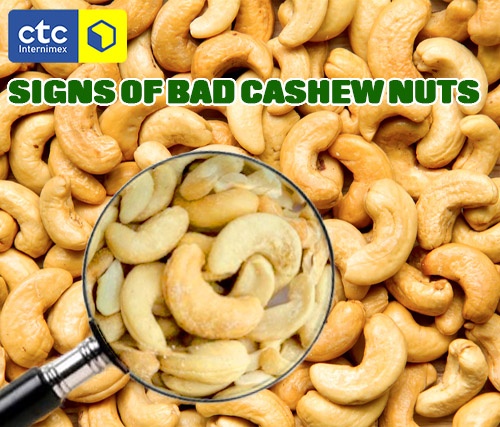 Signs of Bad Cashew Nuts and Why You Should Avoid Them
Signs of Bad Cashew Nuts and Why You Should Avoid Them
Are you seeking international business partnership opportunities with unprecedented benefits? CTC Internimex JSC, your trusted partner in Vietnam, presents a special promotion designed to help you optimize costs and expand your market effectively.
Chia sẻ:




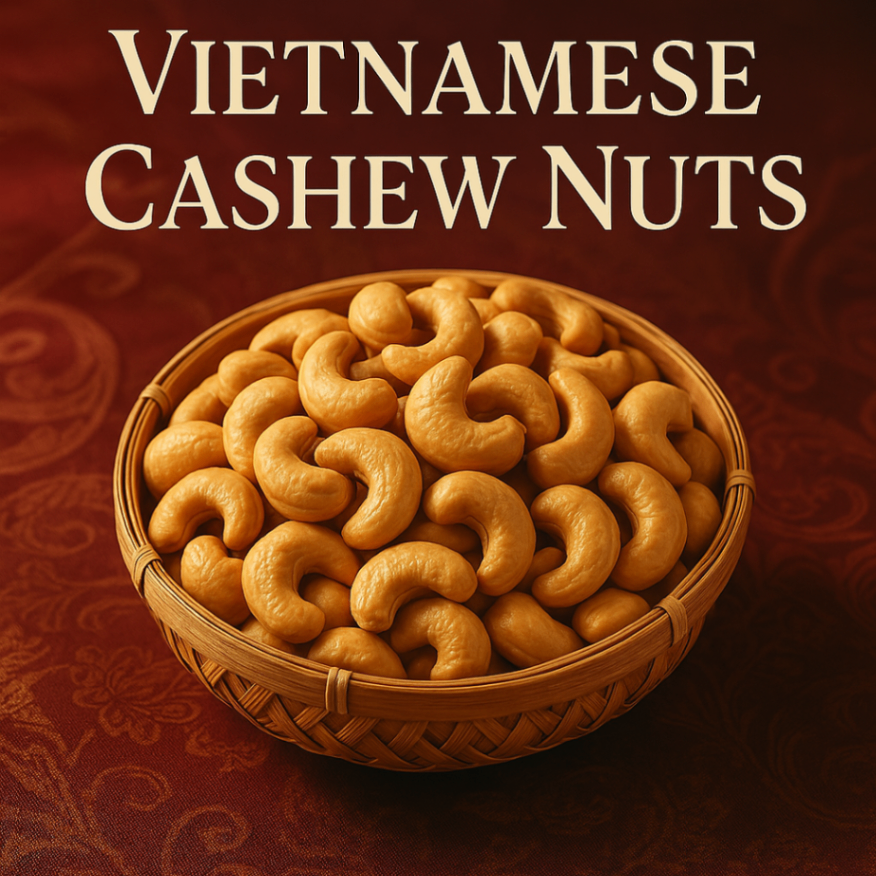

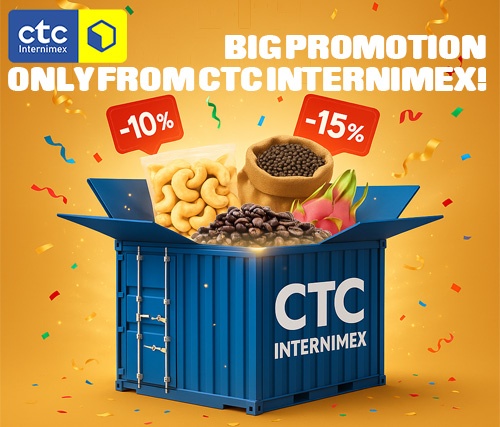
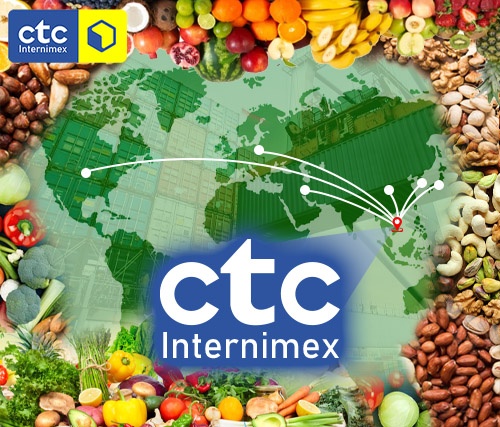
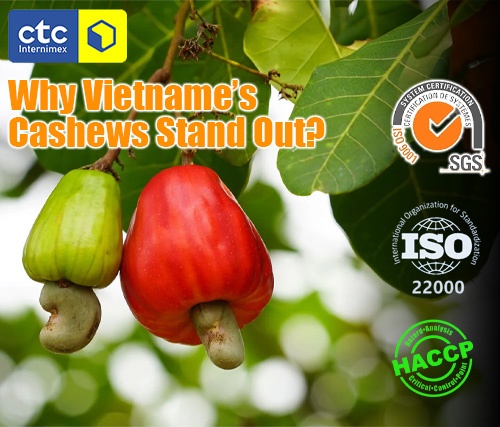




Comment